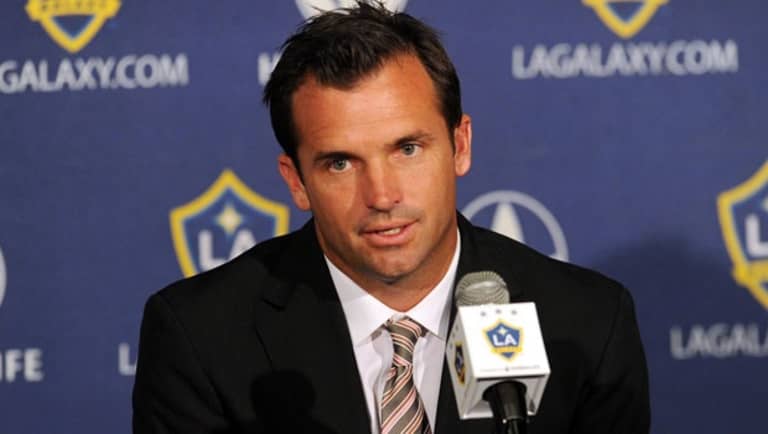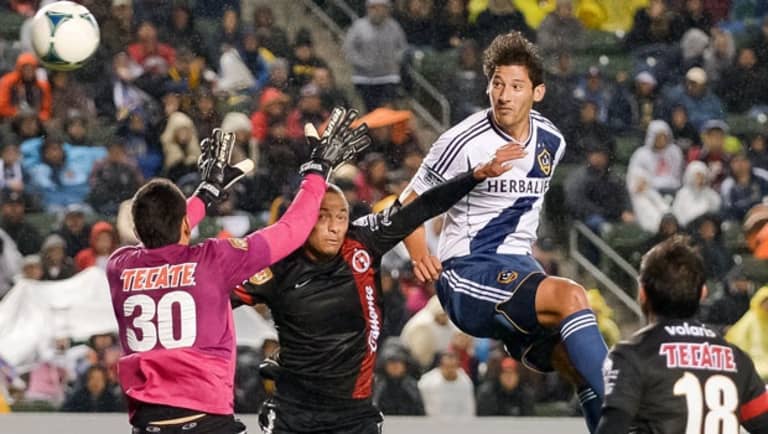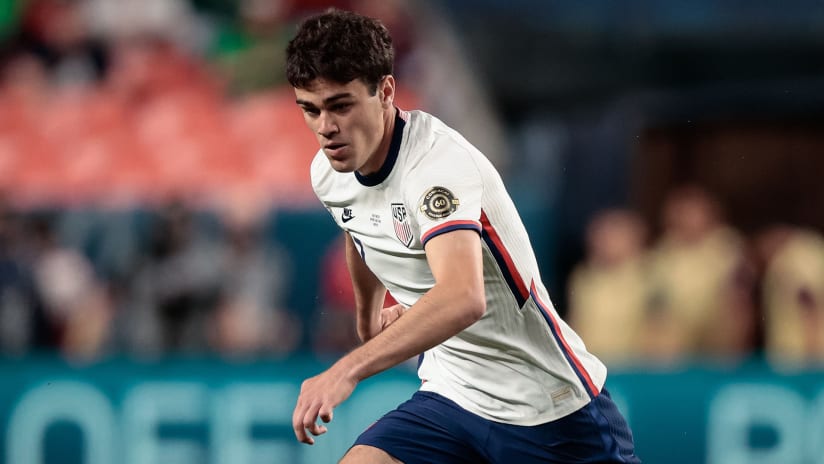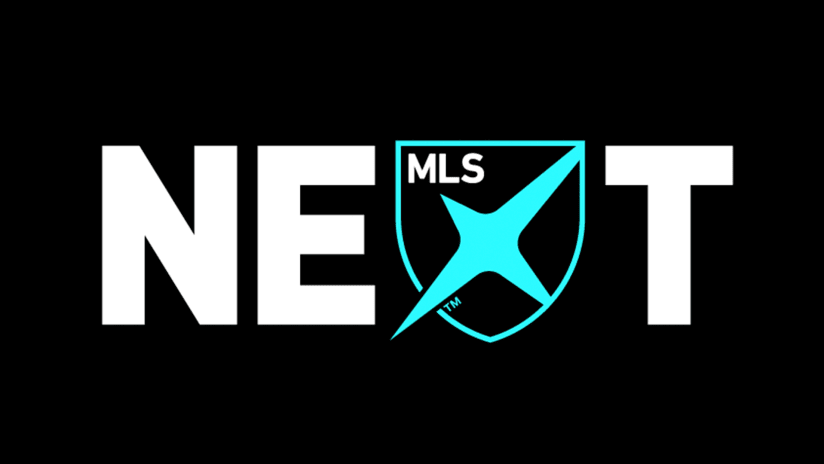CARSON, Calif. – It might be the most heated rivalry that isn't actually a rivalry, a product seemingly of intriguing geography and deft marketing more than anything resembling a real derby.
There's potential for something much more spirited from the LA Galaxy and Club Tijuana, who square off Wednesday in the first leg of their CONCACAF Champions League quarterfinal matchup (10 pm ET, Fox Sports Plus). They've never met in a meaningful match – just two winter exhibitions, in 2011 and 2013 – but they're in a fierce fight, at least theoretically, away from the stadium.
The real battle of Southern California has little to do with who advances to the CCL final four. It's much bigger than that.
“When you talk about the [young] players here in SoCal, the development of these players and where they end up, it is a battleground,” Galaxy president Chris Klein told MLSsoccer.com. “We feel that it's important we keep our players here, and [Tijuana has] the freedom to go and get them wherever they want and bring them back to Tijuana. We don't have that freedom. It's a challenge for us.”
The Xolos, formed in 2007, have targeted the huge talent reservoirs between Santa Barbara and the border, seeking out talented Mexican-American kids to bring into their system. Sporting director Roberto Cornejo estimates that 30 percent of Tijuana's players, from the U-15 level to the first team, are from Southern California.

US men's national team midfielder Joe Corona, who signed after his junior season at San Diego State, is the most prominent, but it's teen attacker Paul Arriola, a US U-17 World Cup veteran, who has played the most vital role. After a trial with Tijuana, he joined the Galaxy's Academy, trained with the first team, and was introduced when last year's team was unveiled to season-ticket holders at an LA Live event.
In May, he turned down a Galaxy offer to sign with the Xolos and has gone on to make 21 first-team appearances, eight of them starts, with three goals. He's the only player, so far, the teams have wrestled for, but there's certain to be more ahead.
“He's the prime example, I guess, one who slipped through the cracks,” said former Galaxy captain Peter Vagenas, director of the club's academy. “I don't fault [Tijuana] in what they're trying to do. SoCal is arguably the most talent-laden region in the country, and it's partly what we base the strength of our academy on, so I don't fault them for trying to come into this region and acquire players.”
Arriola was a unique situation. He's from Chula Vista, just a few miles north of the border. Tijuana are, for all intents, his home team.
“Paul is a great player, a good kid, and we loved having him in our program, and he's someone we wanted to be with us,” Klein said. “He made the decision to go there, and I think as a one-off, it's not a big deal, but we don't want it to be a trend.
“We think we offer the best path for development for kids that come from within our system. We certainly think that's the case for Paul as well. He chose something different, and that's OK. There are many more players that we've kept that teams are coming after. There are going to be some here and there [who leave], but we certainly don't want it to be too many.”
Tijuana two years ago snagged Arriola's World Cup teammate, Stevie Rodriguez, from Chivas USA's academy. Cornejo said Rodriguez is expected to make his first-team debut “shortly.”
Those aside, there haven't yet been any real battles for talent among the Southern California clubs. Mostly they're fending off other Mexican clubs – Tigres UANL scooped up several SoCal players during Dennis te Kloese's time there between his stints with Chivas Guadalajara and Chivas USA – and an increasing European presence.
Klein said Raul Mendiola, a Mexican-born midfielder – widely considered the top young talent in the greater Los Angeles area – who signed a Homegrown Player contract with LA in January, was approached by Mexican and European suitors. He can't be sure which Galaxy prospects have been contacted by other clubs.

“There are times we just don't know,” Klein said. “[Clubs outside MLS] don't have the rules we have. Our rules [mandating strict “Homegrown” territories for academy talent, limited to a 75-mile radius for the Galaxy] are designed to keep us from competing against each other in MLS. They're not as good in helping us compete against those from the outside. That's the gap we have to get over. We have to keep our best players in our league.”
Arriola says the critical element of his decision to sign with Tijuana was that he knew he'd get a full schedule of games with the Xolos, with the club's U-20 team if not the first team. The Galaxy last May could offer only a dozen MLS Reserve League games and a few friendlies against smaller local clubs and college teams.
LA's response was to form a reserve team for the third-tier USL PRO. LA Galaxy II, with their professional roster supplemented by first-team player “loans” and academy players, have a 28-game schedule, US Open Cup berth and potential playoff matches.
“[Arriola's concern] is obviously a big reason why we're doing Galaxy II,” said LA assistant Curt Onalfo, who is coaching the team. “Because we in theory don't ever want to lose a player.”
Said Klein: “That's 100 percent with [Arriola's situation] in mind. And Paul's correct [that we couldn't offer him enough games], but we've corrected that. Now we have the system that is the right structure for development. We have a long way to go, but the system is in place.”

The Galaxy aren't going to win every fight for every kid. And a lot of Mexican-American kids in Southern California are going to lean toward Mexico. Cornejo estimates that there are around 30 SoCal players in the Xolos' program – it's almost evenly split, he says, among players from Southern California, Baja California, and the rest of Mexico, primarily Sinaloa – and that they come from Los Angeles, Orange County, the Inland Empire and San Diego County.
As their academy matures, and as the Galaxy's continues to do so, they're going to tussle at times.
“I think that is very true,” said Arriola, who also turned down a UCLA scholarship offer to sign with the Xolos. “I think I'm one of the first examples, maybe not only for me, but for [Galaxy forward] Jose Villarreal, who just went down to Mexico City [on loan to Cruz Azul, with an option to buy].
- Check out the latest LA Galaxy news at LAGalaxy.com
“You know, I think there is a lot of concern about people wanting for MLS to have rights to their young academy kids, which they can't because of the college [eligibility] rules, and all that stuff frustrates some people, but at the same time, there is not much that the MLS teams can do about it other than try to bring in the under-23 league and try to keep [players] through the ranks the whole time.”
Arriola sees this as fuel for a rivalry “not only between the teams of LA and TJ, but also through MLS and the Mexican league.”
While everyone with the Galaxy touts their system as the best for player development, Cornejo says Tijuana's program is superior, and new wrinkles may play out at Chivas USA once a local owner is found. They – and others, too – all could be fighting over talent for decades.
And that might be the roots to a real rivalry.












